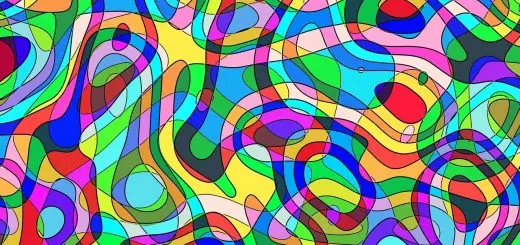The Etruscan Influence on Roman Mythology

Looking for more amazing products? Check out our online store and explore our collection here! Happy shopping!
Before diving in, please note: This post is for informational purposes only. If you’d like to know more about how we approach topics, feel free to check out our friendly Disclaimer Page.
Hey there, amazing readers! 
We’re committed to delivering quality posts, and your support (even just sticking around despite the ads) means everything to us. So, bear with us, and thanks for helping us keep the good vibes rolling. Now, on to the fun stuff!
TRANSLATE BUTTON AT THE END OF THE ARTICLE
Overview
The Etruscan civilization, which flourished in ancient Italy from the 8th to the 3rd century BCE, had a profound influence on many aspects of Roman culture, including their mythology.
The Romans, who later conquered the Etruscans, adopted and assimilated many of their religious beliefs, deities, rituals, and artistic motifs.
This article explores the various ways in which Etruscan mythology shaped and influenced Roman mythology, delving into the origins of Etruscan myth, the comparison of Etruscan and Roman gods and goddesses, the impact on religious beliefs and practices, the influence on creation myths, the similarities and differences between deities, the concept of the underworld, sacrificial offerings, divination, artistic depictions, and the lasting legacy of the Etruscans in Roman myth.
Origins of Etruscan Mythology: Tracing the Roots
The Etruscans believed that their gods and goddesses played an integral role in their daily lives and were responsible for shaping their society.
They believed that their gods controlled natural forces, such as the weather, fertility, and agriculture.
The origins of Etruscan mythology can be traced back to the ancient Near East, particularly Mesopotamia, where many of their religious ideas and practices were influenced by the ancient Babylonians and Assyrians.
Over time, these beliefs evolved and were adapted to fit the unique Etruscan culture, resulting in a distinct mythological system.
Etruscan Gods and Goddesses: A Comparative Analysis
In Etruscan mythology, there were several major gods and goddesses who held prominent roles in their pantheon.
Some of the most important deities included Tinia (Jupiter), Uni (Juno), and Menrva (Minerva).
These gods and goddesses had counterparts in Roman mythology, with Tinia being associated with Jupiter, Uni with Juno, and Menrva with Minerva.
However, there were notable differences in the attributes and characteristics attributed to these deities, reflecting the unique cultural perspectives and traditions of the Etruscans.
Etruscan Religious Beliefs: Influence on Roman Culture
The Etruscans had a complex religious belief system that influenced many aspects of their daily lives.
They believed in the existence of multiple afterlife realms, with each individual being judged by their actions in life.
This belief in the afterlife and the importance of personal morality greatly influenced Roman religious beliefs and practices.
The Romans adopted the Etruscan concept of a divine judgment after death, with their own beliefs in a final judgment and punishment or reward in the afterlife.
Etruscan Influence on Roman Mythological Figures
The Etruscans had a significant impact on the development and characterization of mythological figures in Roman mythology.
Many of the ancient Roman gods and goddesses had their origins in Etruscan deities, with the Romans adopting and incorporating the Etruscan pantheon into their own mythological system.
For example, the Etruscan god Voltumna, associated with agriculture and fertility, was assimilated into Roman mythology as Saturn, the god of agriculture and abundance.
Etruscan Rituals and Practices: Shaping Roman Traditions
The Etruscans had elaborate rituals and practices that greatly influenced Roman traditions.
One such example is the practice of haruspicy, a form of divination involving the examination of animal entrails.
The Romans adopted this practice and integrated it into their religious ceremonies as a means of communicating with their gods and obtaining guidance.
The Etruscan influence on Roman rituals and practices extended to other areas as well, including funeral rites, religious processions, and the construction of temples and sacred spaces.
The Etruscan Influence on Roman Creation Myths
Etruscan mythology played a significant role in shaping Roman creation myths.
The Etruscans believed in the existence of primordial beings who gave birth to the gods and created the world.
This concept of a cosmogony, or the origin of the universe, influenced Roman creation myths, which incorporated similar ideas and themes.
The Etruscan influence can be seen in the Roman myth of the birth of Venus, who was believed to have emerged from the sea, similar to the Etruscan goddess Turan.
Etruscan Deities in Roman Gods’ Clothing: Similarities and Differences
The assimilation of Etruscan deities into Roman mythology resulted in similarities and differences between the two mythological systems.
While many of the Etruscan gods and goddesses were incorporated into the Roman pantheon, their attributes and characteristics often underwent changes to align with Roman traditions.
For example, the Etruscan god Tinia, associated with lightning and thunder, became Jupiter in Roman mythology, with additional attributes and roles attributed to him.
The Etruscan Underworld: A Profound Impact on Roman Afterlife Beliefs
The Etruscans had a complex belief system regarding the afterlife, which greatly influenced Roman ideas about the underworld.
Explore the Path to Spirituality and Enlightenment – Start Here.
The Etruscans believed in a realm called the underworld, where souls were judged and assigned a place based on their actions in life.
This idea of a divine judgment after death was adopted by the Romans, who developed their own concept of the underworld influenced by Etruscan beliefs.
The Roman underworld, known as the "Inferi," was seen as a realm of punishment and reward, with different areas for the righteous and the wicked.
Etruscan Influence on Roman Sacrificial Offerings and Divination
The Etruscans were known for their practice of divination and the offering of sacrifices to their gods.
This practice greatly influenced Roman religious rituals and practices.
The Romans incorporated the Etruscan tradition of divination, particularly haruspicy, into their own religious ceremonies.
Sacrificial offerings, both animal and human, were also influenced by Etruscan practices.
The Romans adopted and modified these practices to fit their own religious beliefs, with sacrifices playing a significant role in their interactions with the gods.
Etruscan Art and its Reflection in Roman Mythological Depictions
Etruscan art had a profound influence on the development of Roman mythological depictions.
The Etruscans were skilled artists, known for their intricate and detailed sculptures, frescoes, and pottery.
Many of these artistic motifs and styles were adopted and incorporated into Roman art.
The Etruscan influence can be seen in the depiction of mythological figures in Roman art, especially in the use of elaborate headdresses, flowing robes, and naturalistic poses.
Legacy of the Etruscans: Perpetuating Their Influence in Roman Mythology
The Etruscan influence on Roman mythology was far-reaching and enduring.
Despite the Roman conquest of the Etruscan civilization, the Etruscan mythological tradition continued to shape and influence Roman culture for centuries.
The assimilation of Etruscan deities, rituals, and beliefs into Roman mythology not only enriched the Roman pantheon but also contributed to the development of Roman religious practices, artistic depictions, and afterlife beliefs.
The legacy of the Etruscans in Roman mythology is a testament to the enduring impact of their civilization on the ancient world.

The Enlightenment Journey is a remarkable collection of writings authored by a distinguished group of experts in the fields of spirituality, new age, and esoteric knowledge.
This anthology features a diverse assembly of well-experienced authors who bring their profound insights and credible perspectives to the forefront.
Each contributor possesses a wealth of knowledge and wisdom, making them authorities in their respective domains.
Together, they offer readers a transformative journey into the realms of spiritual growth, self-discovery, and esoteric enlightenment.
The Enlightenment Journey is a testament to the collective expertise of these luminaries, providing readers with a rich tapestry of ideas and information to illuminate their spiritual path.
Our Diverse Expertise
While our primary focus is on spirituality and esotericism, we are equally passionate about exploring a wide range of other topics and niches 

To ensure we provide the most accurate and valuable insights, we collaborate with trusted experts in their respective domains 
Our blog originally focused on spirituality and metaphysics, but we’ve since expanded to cover a wide range of niches. Don’t worry—we continue to publish a lot of articles on spirituality! Frequently visit our blog to explore our diverse content and stay tuned for more insightful reads.
Hey there, amazing reader! 
Check out our store here and take a peek at some of our featured products below! Thanks for being awesome!















